Hi! Welcome to my writer’s website.
My name is Shimon Avish (She-mone Ah-veesh), and I write novels about significant events in Jewish history.
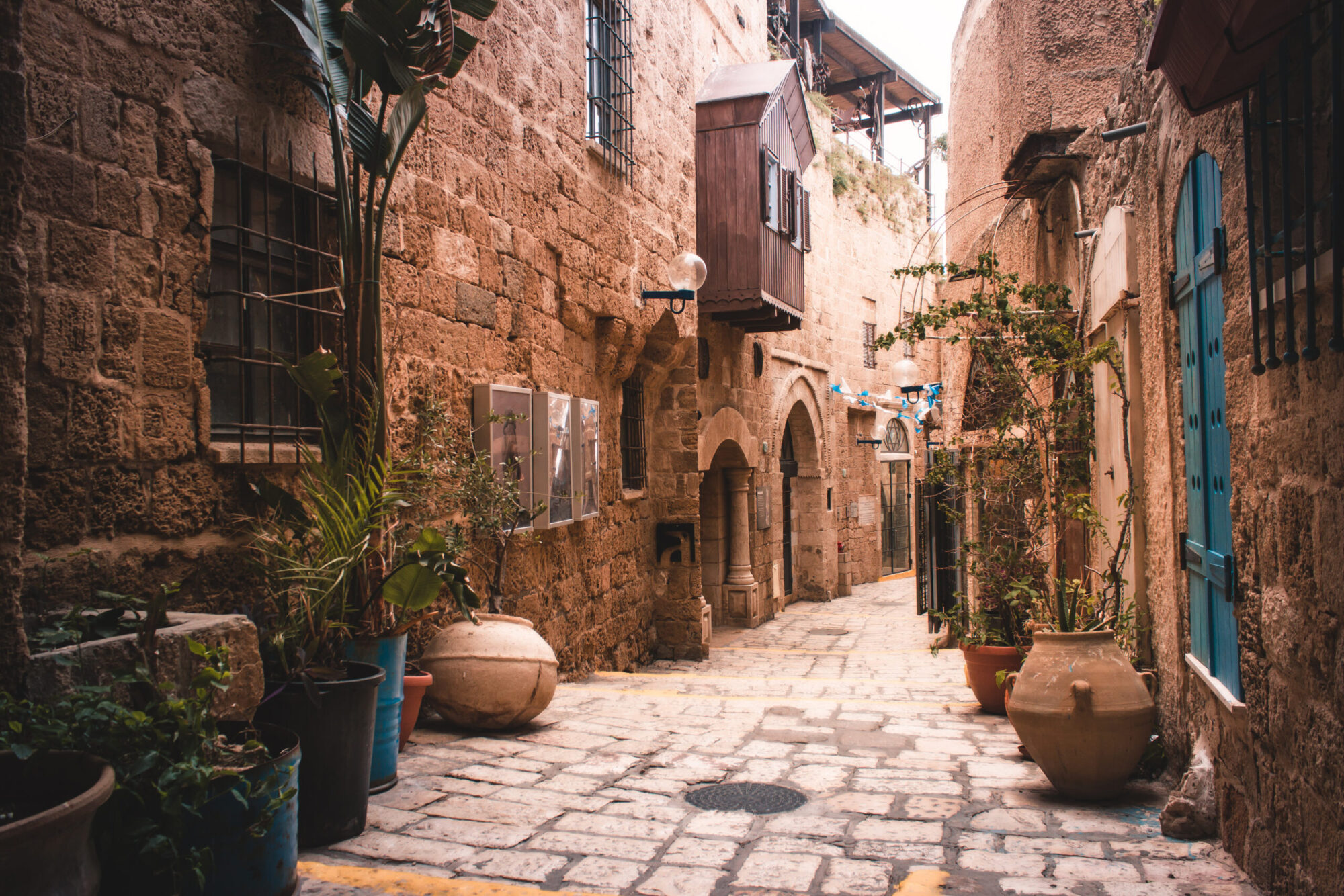
Author of novels about significant events in ancient Jewish history
Hi! Welcome to my writer’s website.
My name is Shimon Avish (She-mone Ah-veesh), and I write novels about significant events in Jewish history.
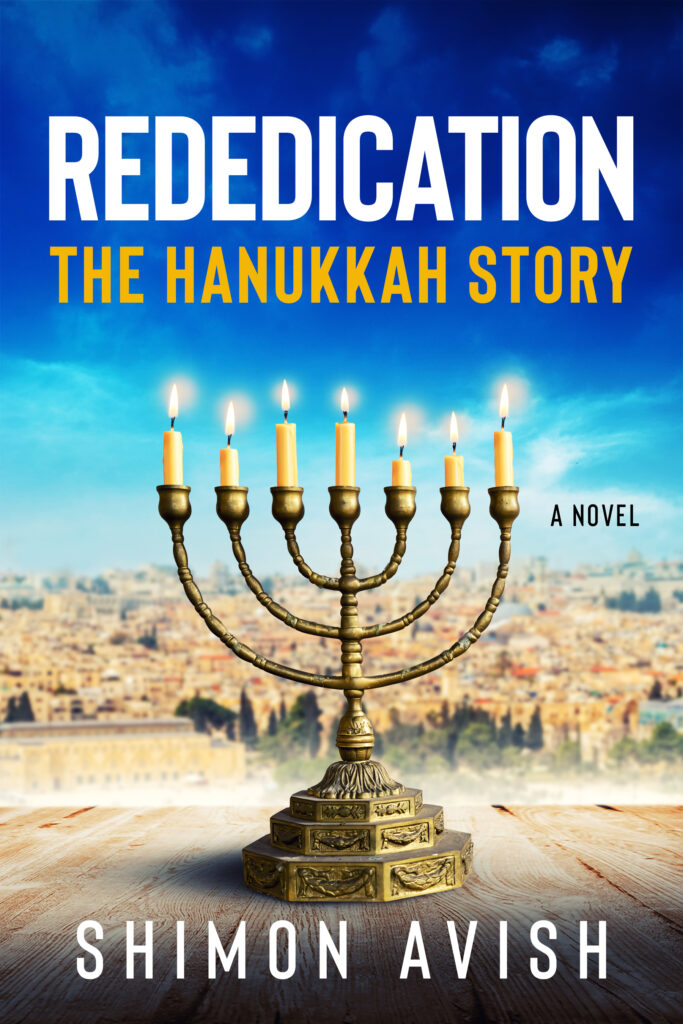
Rededication: The Hanukkah Story
Set in the ancient Greek world under King Antiochus IV, Rededication explores a time when practicing Judaism was forbidden. In the face of the desecration of the Temple in Jerusalem and the imposition of Hellenistic rituals by their Seleucid rulers, five Maccabee brothers rose up to defy the oppression. Led by Judas Maccabee, they began a fierce struggle against tyranny and religious persecution.
Follow the Maccabees as they fight to reclaim their faith, battling against the Seleucid king and the Hellenizing priests who sought to impose Greek culture on their land. Will they succeed in securing the right to practice Judaism as commanded by God? Can they drive out the oppressive Seleucids and restore freedom to their people?
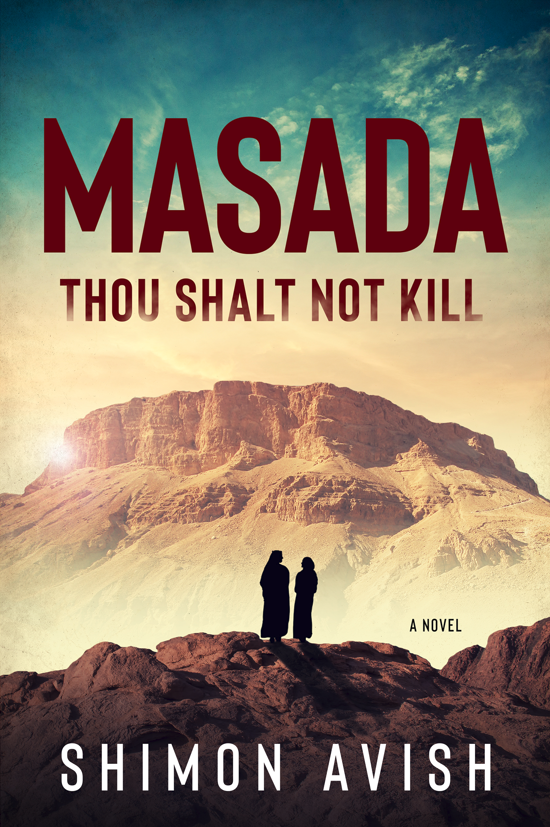
Masada: Thou Shalt Not Kill
When 18-year-old Daniel is abducted by Sicarii assassins and taken to their walled fortress of Masada, he’s forced to let go of the Jewish Law he’s learned from his parents and to adopt his kidnappers’ code of violence and thievery, simply to stay alive.
Wracked with guilt but determined to survive, Daniel becomes part of the Sicarii culture, even marrying one of their soldier’s sisters. Between violent raids against neighboring settlements to prevent starvation and other challenges to his beliefs, Daniel is faced with choice after choice that test his character, strength, and resolve and push him to discover the kind of man he wants to be.
“A striking narrative interwoven with biblical history and appealing characters – if you loved “The Dovekeepers” by Alice Hoffman, then don’t miss this one!” –The Historical Fiction Company
“This work is very well researched and beautifully written. This is a MUST read for anyone interested in the mystery of Masada.” –Leoma Gilley, author of The Still Small Voice of Love
“Shimon Avish’s debut novel is a captivating retelling of the Masada story…combining vivid characters, rich language, and a relentless plot.” –Benjamin Buchholz, author of Sirens of Manhattan
The Rebel’s Niece
Awarded five out of five stars and the “Highly Recommended” award of excellence from the Historical Fiction Company for 2023.
It is 70 CE, and the Roman commander, Titus Flavius Vespasianus, and his legions have arrived at the walls of ancient Jerusalem. Three Jewish factions opposing them are each led by a charismatic leader more interested in being recognized as the Messiah than protecting their people from the consequences of standing up to Roman power.
The Rebel’s Niece is the story of Sarah, whose uncle, Yochanan, is one of the messianic leaders, and she cannot help but wonder whether God actually commanded Yochanan to free the Jewish people from the Romans, as he claims.
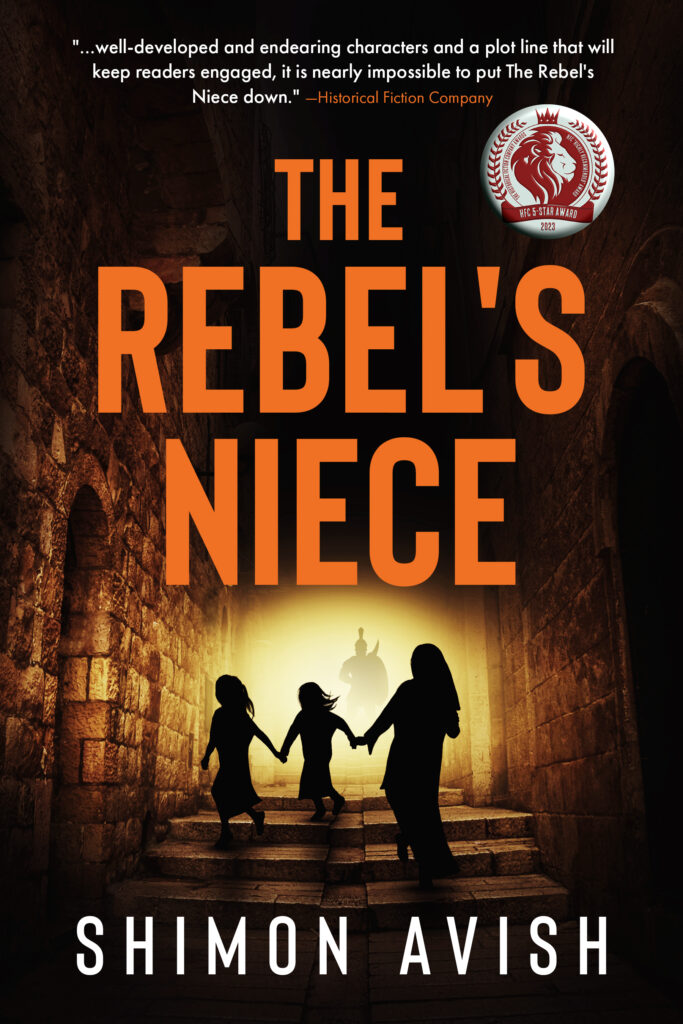
Orphaned as a child, Sarah was saved by her uncle when marauders invaded their village and killed her parents. Now that she is a wife and mother with two daughters, she wants her children to grow up without the horrors she experienced as a young girl. But is it possible, given the turbulent times she lives in? With a Roman legion chasing them from their village in Galilee, Sarah’s fellow townsfolk, led by her uncle, escape to Jerusalem, where her uncle intends to become the leader of the rebel forces and free Jerusalem and Israel from Roman occupation.
Once there, Yochanan wends his way into a position of leadership based on claims that God commanded him to expel the Romans from Israel, but Sarah begins to doubt his honesty as he leads his followers from disaster to disaster. Will Sarah challenge the veracity of her uncle? Will it be in time?
“…well-developed and endearing characters and a plot line that will keep readers engaged, it is nearly impossible to put The Rebel’s Niece down.” –Historical Fiction Company
“Avish brings ancient history to life in The Rebel’s Niece with a gripping and vibrant retelling of one of the most tumultuous times in Jerusalem’s long story.” –Ruth Eglash, author of Parallel Lines
“… The Rebel’s Niece is a compelling, thrilling account of one of the most significant events in ancient Jewish history.” –Ellis Shuman, author of The Burgas Affair
Forthcoming Books in the Significant Events in Ancient Jewish History Series:

My name is Shimon Avish (She-mone Ah-veesh), and I was born in center-city Philadelphia, but moved to Jerusalem, Israel, when I was fourteen. I spent my high school years learning mechanical engineering and trying to fit into a society very different from the one I left behind. In Israel, all teenage boys and girls knew they would soon spend two-to-three years serving their country in the military, and for the boys, who typically enlisted in combat units, this meant toughening themselves up physically and mentally to survive their service intact.
I volunteered for a branch of the military called Nahal, which combines active duty military service with establishing a border kibbutz. I spent over two years in uniform, initially learning to be an infantryman, and later, a combat medic. Military command posted me to the Jordanian border, with a unit that patrolled near the Dead Sea several times a day. Almost every morning, after we completed an overnight patrol, our lieutenant would take us on a quick hike up the Snake Path of Masada in full combat gear, or for a quick trip into the desert to look for scorpions. We hated it at the time because we typically only slept on the ground for three hours the night before, but now, with the distance and wisdom of age, I look back and appreciate those times.
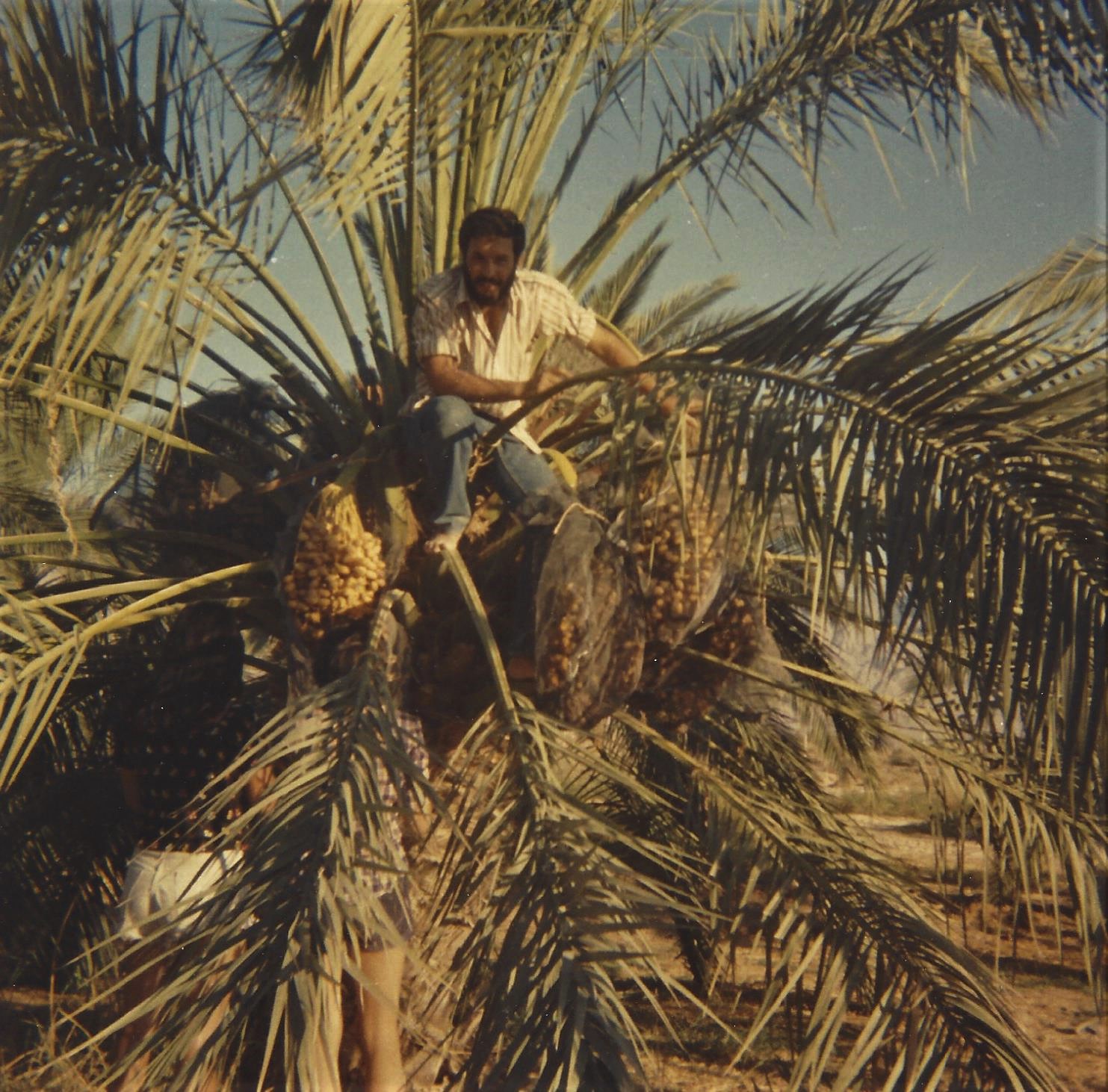
I spent the rest of my enlisted time establishing Kibbutz Yahel, which is 160 kilometers south of Masada on the Jordanian border. Most of my time was spent first establishing, and then working in, the metal shop of the kibbutz, repairing and fabricating farm equipment, but was also lucky enough to work in both the orchards and vegetable fields, where I learned to harvest dates, onion, peppers, and tomatoes. I also served as the Kibbutz Financial Manager for a time, overseeing revenue and expense management.
After serving for three-and-a-half years, I returned to Jerusalem and worked as an incognito security guard at the Jerusalem Plaza Hotel, until I started my industrial design training at the Bezalel Academy of Art and Design. Upon the advice of one of my professors, I applied to universities in the U.S. to complete my undergraduate degree, and attended the University of Pennsylvania for environmental design. Upon graduation I returned to my industrial design roots, and opened a cabinetmaking shop in Philadelphia, where I designed and built custom furniture. After suffering two injuries, my wife and I decided it was time for me to engage in a less dangerous occupation, and so I returned to school.
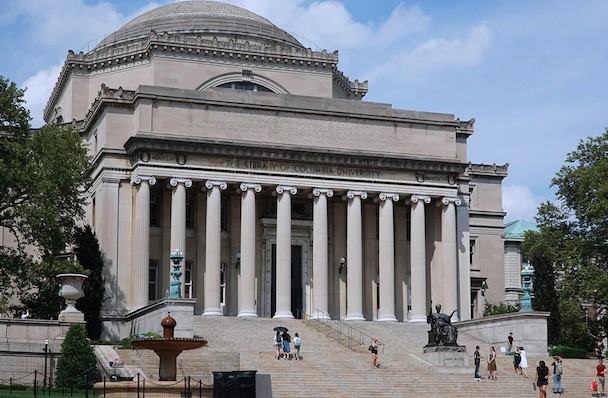
My interests had become more political over time, and based on my experiences serving in the military, I decided to peruse a master’s degree in national security studies at the University of Maryland, College Park, and upon completion I entered Columbia University’s Ph.D. program in political science. I spent nine years in graduate school, and all I can say is, “My wife is a saint.” Our two children were born while I was still in school, which made for an adventure. Our daughter was born just in time for the family to spend six months in Jerusalem while I conducted field research for my dissertation, and my son was born just in time for me to finish and defend my dissertation.
Serendipity plays an important role in most peoples’ lives, and it certainly did in mine. There were very few open positions for newly minted political science professors in the year I graduated, but a friend of mine owned an international business consulting firm, and I worked with him for a few years, until American Express’ consulting group recruited me. This was the beginning of a twenty-four-year tenure as a globe-trotting business travel management consultant, which came to a screeching halt with COVID-19’s arrival.
Fortunately, my wife was kind enough to let me pursue my other dream, which was to finish my novel about Masada, and to begin writing a series on significant events in Jewish history, including:
I hope you will join me in my grand adventure.